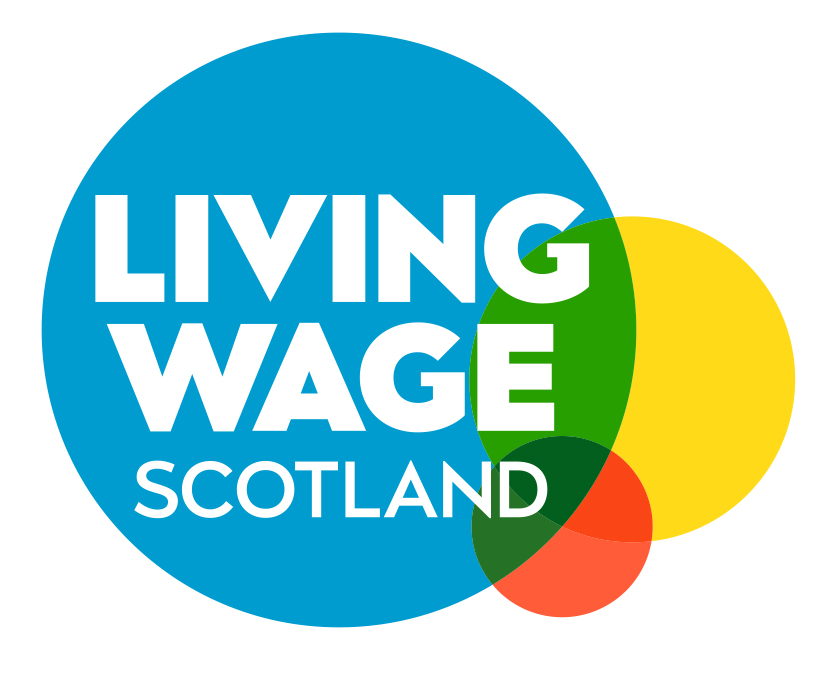SSE plc, a UK listed company, are a leading generator of renewable electricity and one of the largest electricity network companies in the UK, employing 10,000 people.
SSE were early adopters of the real Living Wage and became accredited in 2013 making them the UKs largest accredited Living Wage employer at that time. They were also the largest FTSE 100 company to become accredited and make the commitment to ensure all direct employees and regularly contracted workers receive at least the real Living Wage. Almost 10 years later and 50% of the FTSE 100 have followed their example and become accredited.
In 2014, a Living Wage clause was implemented on all new contracts issued by SSE who awarded the largest ever Living Wage contract. In 2017 the clause was extended, beyond the Living Wage Scotland requirement, to those not on the premises and again in 2020, to include offshore vessels in all offshore wind contracts.
In 2019, SSE committed to supporting committed to support a brand-new campaign aimed at tackling insecurity over working hours becoming officially accredited as a Living Hours employer in 2021. Following their accreditation, SSE changed their Living Wage clause to include Living Hours.
Living Wage Commitment
Since the early days of the campaign, SSE have demonstrated their commitment to the Living Wage and have shown leadership in the world of big business by being an example of a good employer.
SSE are committed to a real Living Wage for three main reasons. Foremost is the ethical motivation that sees everyone working for the company being treated with respect and benefitting from a decent standard of living. They also recognise that this people-centred stance profits the business by fostering a more motivated and loyal workforce which in turn leads to better retention rates and employee engagement.
Finally, SSE understand their leadership role within the business community. As one of the biggest companies in Scotland, they are able to send a clear signal to other large employers that fair employment practices benefit businesses, people and society.
In 2013, SSE helped to establish the Living Wage Scotland Leadership Group. They have continued to be key members of the Group, with two Chair appointments to the Group over the years. SSE have regularly taken part in actions to support and raise awareness of the campaign such as producing videos, hosting events and even projecting the new rate onto the Pitlochry Dam.
At the Living Wage Scotland Awards 2019, SSE’s Chief Sustainability Officer, Rachel McEwen, was the recipient of an Outstanding Contribution Award in recognition of her dedication to the real Living Wage movement.
In 2021, Kate Wallace Lockhart, Head of Sustainability, SSE Renewables, was appointed Chair of the Living Wage Scotland Leadership Group, and in 2022, SSE are sponsors of the Living Wage Scotland Awards.
Living Hours Commitment
Whilst SSE knew that committing to the real Living Wage was a sure demonstration of leadership, they recognised that security of hours is the other side of the coin when it comes to solving in-work poverty.
“The amount of pay employees take home can be affected by irregular and unpredictable hours. Knowing how much you will earn helps make ends meet, knowing when you will work enables a family life with commitments and activities that lead to fulfilment and happiness.”
Rachel McEwen, SSE Chief Sustainability Officer and Chair of Living Wage Scotland Leadership Group 2014-2018
In 2019, SSE joined the Living Hours Steering Group, alongside abrdn and Aviva, among others, to determine what ‘good practice’ should look like for employers who want to offer Living Hours alongside a real Living Wage.
The Living Hours programme requires employers to both pay a real Living Wage and commit to provide at least four weeks’ notice for every shift, with guaranteed payment if shifts are cancelled within this notice period.
Living Hours employers also provide a guaranteed minimum of 16 working hours every week (unless the worker requests otherwise), and a contract that accurately reflects hours worked.
While most directly employed workers at SSE were on regular contracts, there were some who benefitted from the Living Hours standard. A larger number of workers throughout the supply chain have benefited as SSE worked with third party contractors to ensure that everyone who regularly worked on SSE sites were given security of hours and decent notice of shifts.
“The majority of our direct employees are already on contracts which meet the Living Hours requirements, but it is right that a company like SSE, headquartered in the UK and delivering some of the biggest projects in the fight against climate change, should guarantee higher standards for workers. This is fundamental to ensuring there is a fair and just transition to net zero.”
John Stewart, SSE HR Director
In June 2021, SSE were recognised at the Living Wage Foundation UK Champion Awards for their outstanding work in supporting and promoting the Living Hours programme.
The Process of Implementing Living Hours
As the UK’s largest generator of renewable energy, SSE have a complex supply chain and the process of implementing the scheme first required identifying all those who were in-scope. There was then engagement with all third-party contractors and relevant departments within SSE and processes and IT systems were adjusted accordingly.
Initial communications were crucial to ensuring everyone understood why the Living Hours scheme was being introduced and how it would work. As well as communicating with those who would be directly affected by the implementation of the scheme, SSE conducted an extensive series of communications to business leaders and stakeholders. They also took part in information events and regular meetings with the Living Wage Foundation and partners.
The real Living Wage movement has been an incredible phenomenon, championing the fundamental truth that people should be able earn enough to live a decent life. Living Hours is the other side of that coin. The amount of pay employees take home can be affected by irregular and unpredictable hours.
The majority of direct employees at SSE are already on contracts which meet the Living Hours requirements, but it is right that a company like SSE, headquartered in the UK and delivering some of the biggest projects in the fight against climate change, should guarantee higher standards for workers. This is fundamental to ensuring there is a fair and just transition to net zero.
SSE’s Continued Commitment to Fair and Decent Work
SSE have been involved with the Living Wage campaign since its inception. Their support has been an important part of ensuring the continued growth of the movement in Scotland. SSE continue to demonstrate leadership by embedding good employment practices into their commitment to a just transition.
“Scotland’s recovery must be a green one, and we need to prioritise getting to net zero in a fair and just way. The investment needed to decarbonise the economy is remarkable and there is a responsibility to invest in a way that guarantees basic, decent standards for the workers that will deliver this transition.”
Kate Wallace Lockhart, Head of Sustainability, SSE Renewables and Chair of the Living Wage Scotland Leadership Group
SSE’s Just Transition strategy established a set of 20 principles to guide the business through the social issues related to the transition to net zero. Living Wage and Living Hours accreditation are key to this transition and the creation of a sustainable and just future that provides everyone with decent work.
Overall Impact
For companies considering becoming accredited as Living Wage Employers they can take comfort in the fact that they are part of a movement of over 11,500 Living Wage Employers nationally, the impact of which is 350,000 pay rises secured for workers, with £2 billion going back to low paid workers.
Download a pdf version of SSE plc Case Study here


